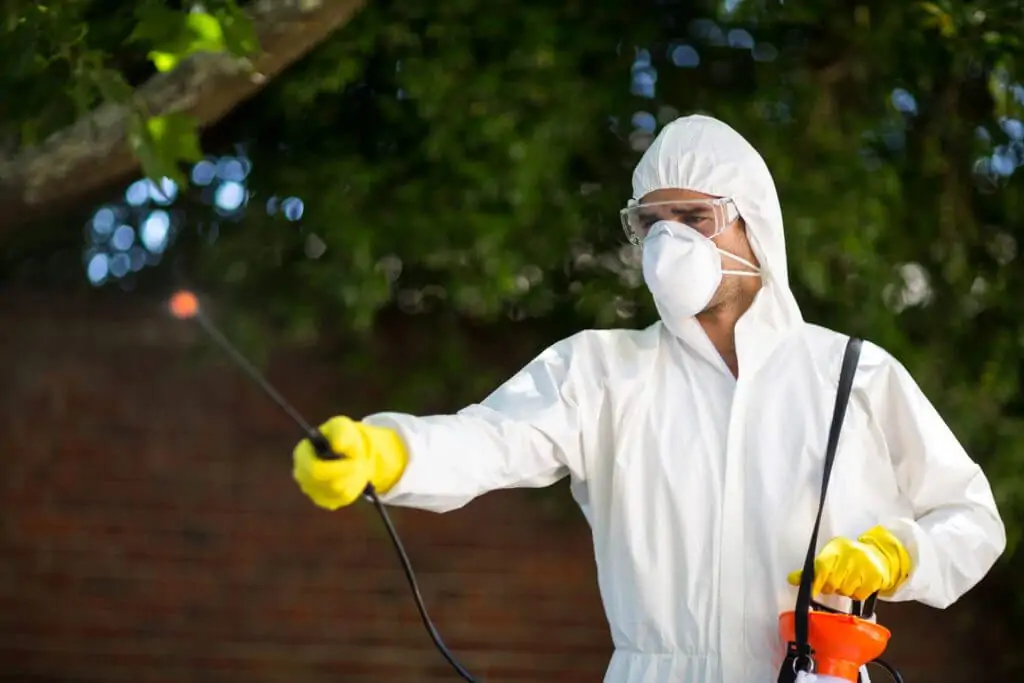Understanding the Various Strategies to Parasite Control: A Comprehensive Overview

Natural Insect Control Approaches
Employing environment-friendly techniques such as friend growing and organic pest control is vital for properly taking care of pests in agricultural settings. Buddy growing entails expanding various crops in distance to hinder bugs, enhance nutrient uptake, and enhance general plant health and wellness.
Organic bug control involves presenting natural killers or microorganisms to control pest populaces. Ladybugs, as an example, feed on aphids, regulating their numbers without the need for chemical pesticides. One more example is making use of Bacillus thuringiensis (Bt), a microorganism that targets details insect pests while being harmless to human beings, pets, and beneficial insects.
These environmentally friendly techniques not only minimize the dependence on synthetic pesticides yet likewise assist protect biodiversity and soil wellness. By incorporating all-natural insect control approaches into farming techniques, farmers can accomplish sustainable insect monitoring while minimizing adverse effect on the atmosphere.

Chemical Pest Control Solutions
Along with natural insect control methods, the use of chemical parasite control services plays a considerable duty in efficiently managing pest populations in agricultural atmospheres. Chemical insect control solutions are formulated to target particular pests that might trigger substantial damages to crops. These options commonly contain synthetic pesticides that are created to eliminate parasites swiftly and efficiently.
Among the essential benefits of chemical pest control options is their performance in regulating parasite infestations on a large scale. Farmers can use these solutions making use of numerous techniques such as splashing, fumigation, or seed therapy to safeguard their crops from dangerous pests, weeds, and illness. Furthermore, chemical bug control services are reasonably easy to use and can offer fast results, helping farmers safeguard their returns and decrease economic losses.
However, it is vital to make use of chemical parasite control options judiciously to minimize prospective adverse effect on the atmosphere, non-target organisms, and human wellness. Correct application strategies, adherence to security standards, and routine monitoring are essential to ensure the responsible usage of chemical pest control options in farming techniques.
Organic Bug Control Approaches
Biological parasite control comes close to take advantage of all-natural predators or pathogens to take care of insect populaces in agricultural settings efficiently. This technique supplies a sustainable and environmentally friendly remedy to pest monitoring, minimizing the reliance on artificial chemicals and minimizing injury to the atmosphere. One common biological control method is the introduction of natural enemies, such as ladybugs or parasitical wasps, to target details bugs. These killers prey on the parasites, assisting to manage their populations normally - pest control clovis.
Another biological control method includes making use of pathogens like fungis, microorganisms, or infections to infect and eliminate insects. In general, biological bug control strategies provide a sustainable and targeted remedy to pest monitoring in farming.
Integrated Insect Monitoring (IPM)
Integrated Bug Administration (IPM) is a detailed strategy that incorporates numerous parasite control techniques to properly take care of and reduce pest populaces in farming systems. IPM concentrates on long-term prevention of insects through a mix of biological, social, physical, and chemical control approaches. By incorporating these different approaches, IPM aims to reduce reliance on chemical pesticides, reduce ecological influence, and promote sustainable parasite monitoring practices.
One key facet of IPM is using organic controls such as natural predators, bloodsuckers, and microorganisms to manage bug populaces. This approach takes advantage of the power of nature view it now to keep a balance between parasites and their natural adversaries without causing harm to the atmosphere.
Furthermore, IPM includes cultural methods like crop habitat, rotation, and cleanliness manipulation to create unfavorable problems for pests and interrupt their life cycles. Physical controls such as traps, composts, and obstacles are likewise used to protect against pest infestations.
Physical and mechanical Insect Control Techniques
Using non-chemical approaches, such as mechanical and physical bug control methods, is a crucial element of comprehensive insect monitoring approaches, building on the foundation of Integrated Pest Administration's holistic strategy. Mechanical insect control involves making use of physical obstacles or catches to stop parasites from accessing and damaging plants or frameworks. This method can More Info consist of strategies like installing screens on home windows, using row covers in agriculture, or employing sticky catches to catch insects.
Physical parasite control techniques, on the other hand, concentrate on straight getting rid of pests through physical means. For example, using warmth treatments to remove bed pests or vacuuming up insects like ants or crawlers can be effective ways to handle problems without the use of chemicals. By incorporating these physical and mechanical insect control techniques into an Integrated Bug Management strategy, individuals and professionals can reduce dependence on pesticides while still efficiently taking care of pest populaces and minimizing damages.
Conclusion

In addition to natural parasite control techniques, the use of chemical bug control solutions plays a considerable duty in properly managing pest populaces in agricultural atmospheres.One of the essential benefits of chemical bug control solutions is their performance in managing insect infestations on a large range.Integrated Parasite Administration (IPM) is a thorough strategy that incorporates different insect control techniques to effectively handle and decrease pest populations in agricultural systems.Making use of non-chemical techniques, such as physical and mechanical insect control techniques, is a crucial element of comprehensive insect management techniques, developing upon the foundation of Integrated Insect Administration's all natural technique. By incorporating these physical and mechanical bug control techniques right into an Integrated Insect Management plan, people and specialists can lower reliance on pesticides while still successfully managing pest populaces and reducing damages.